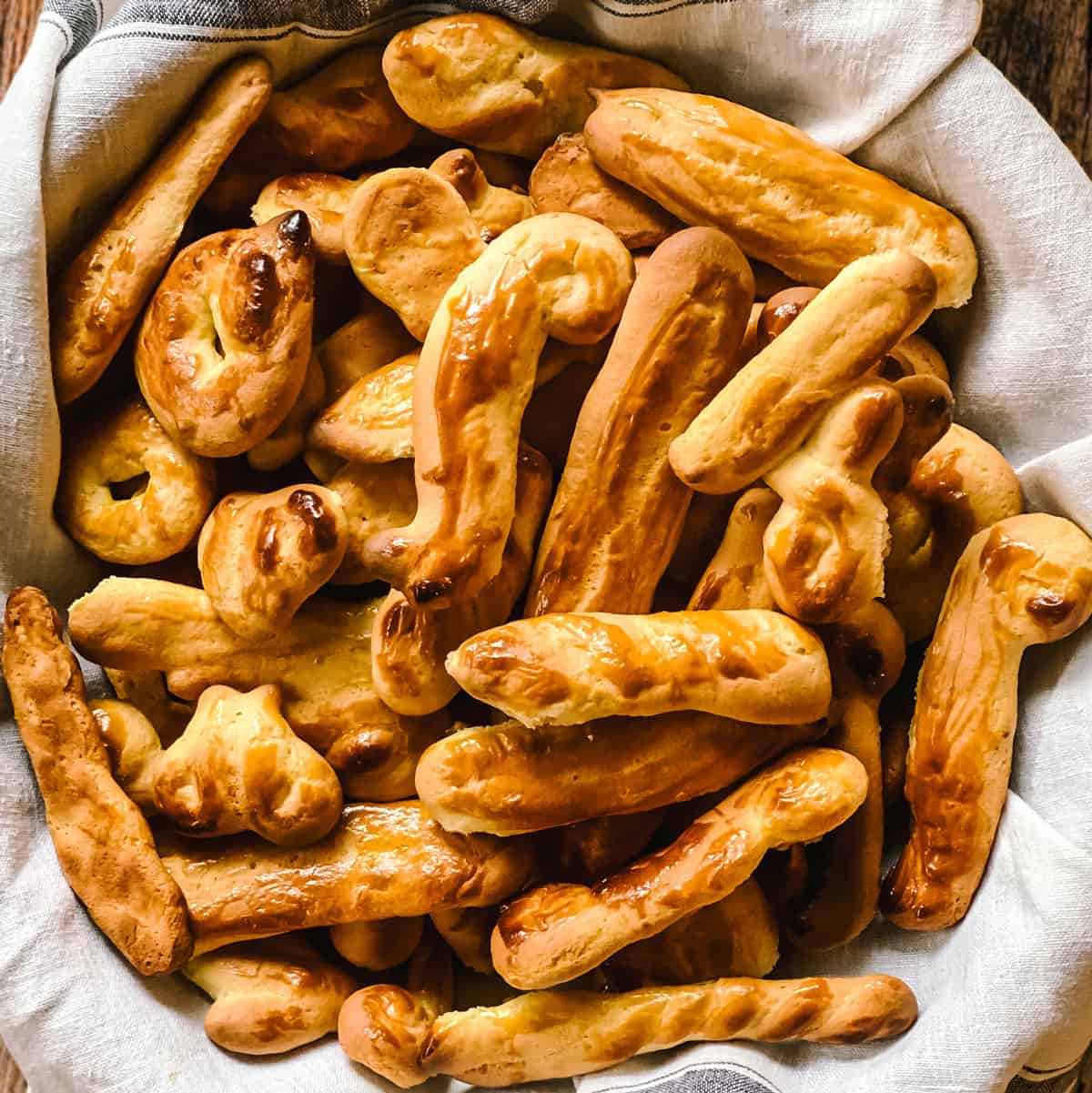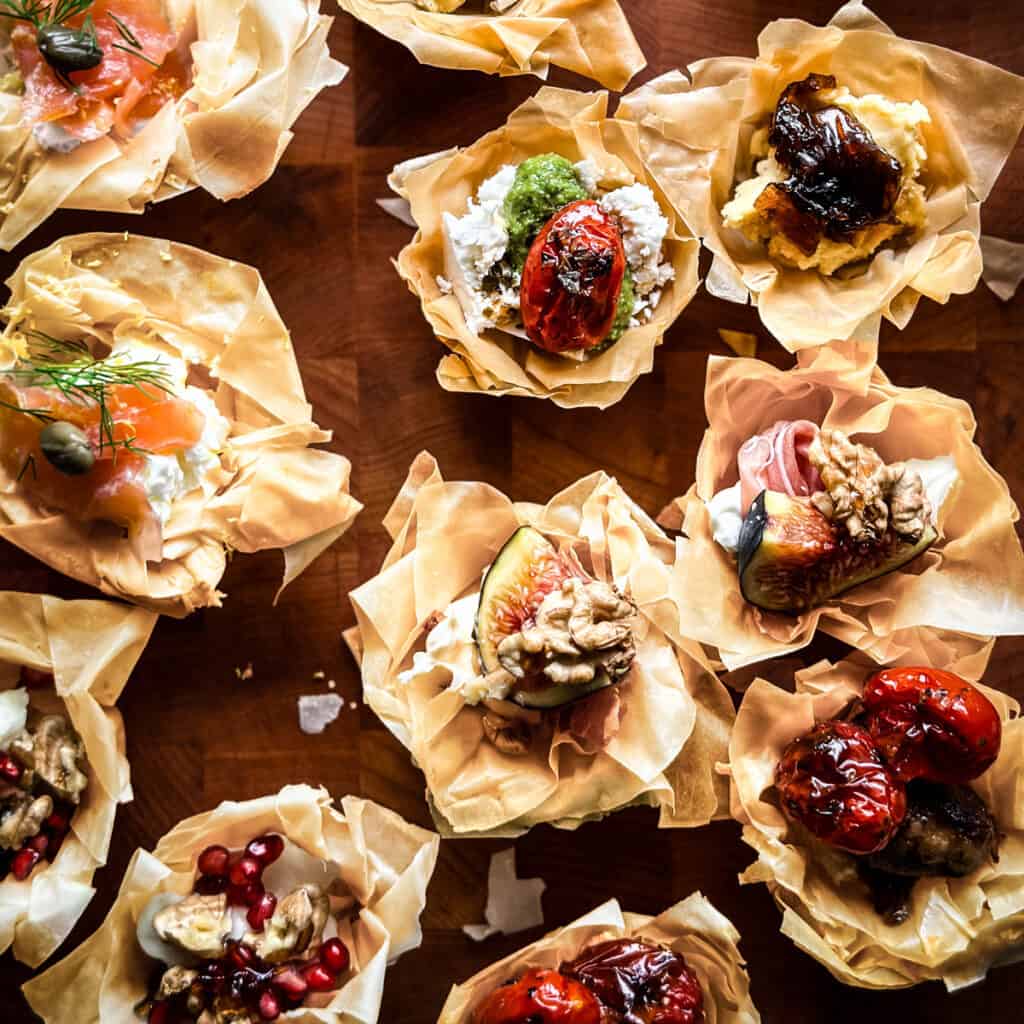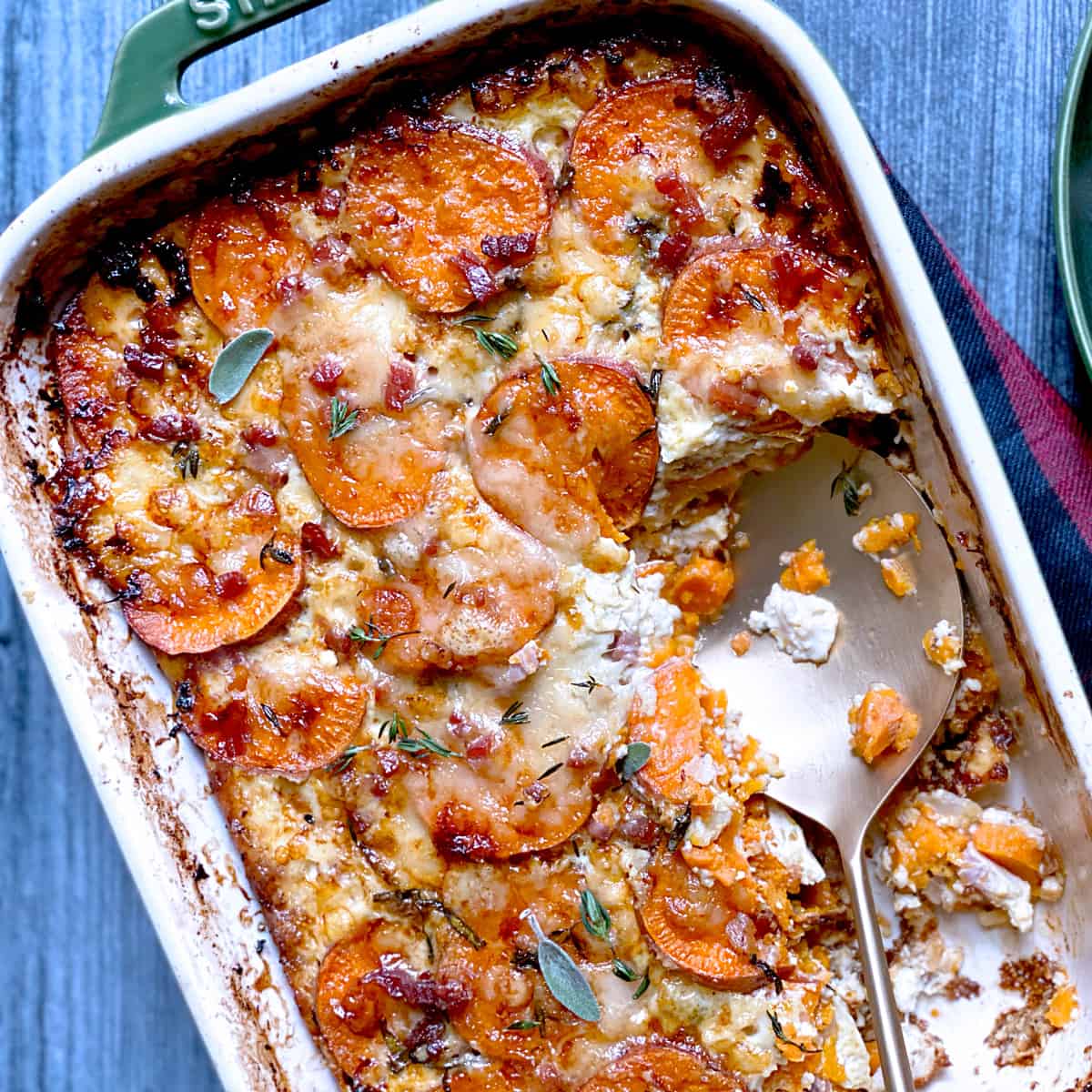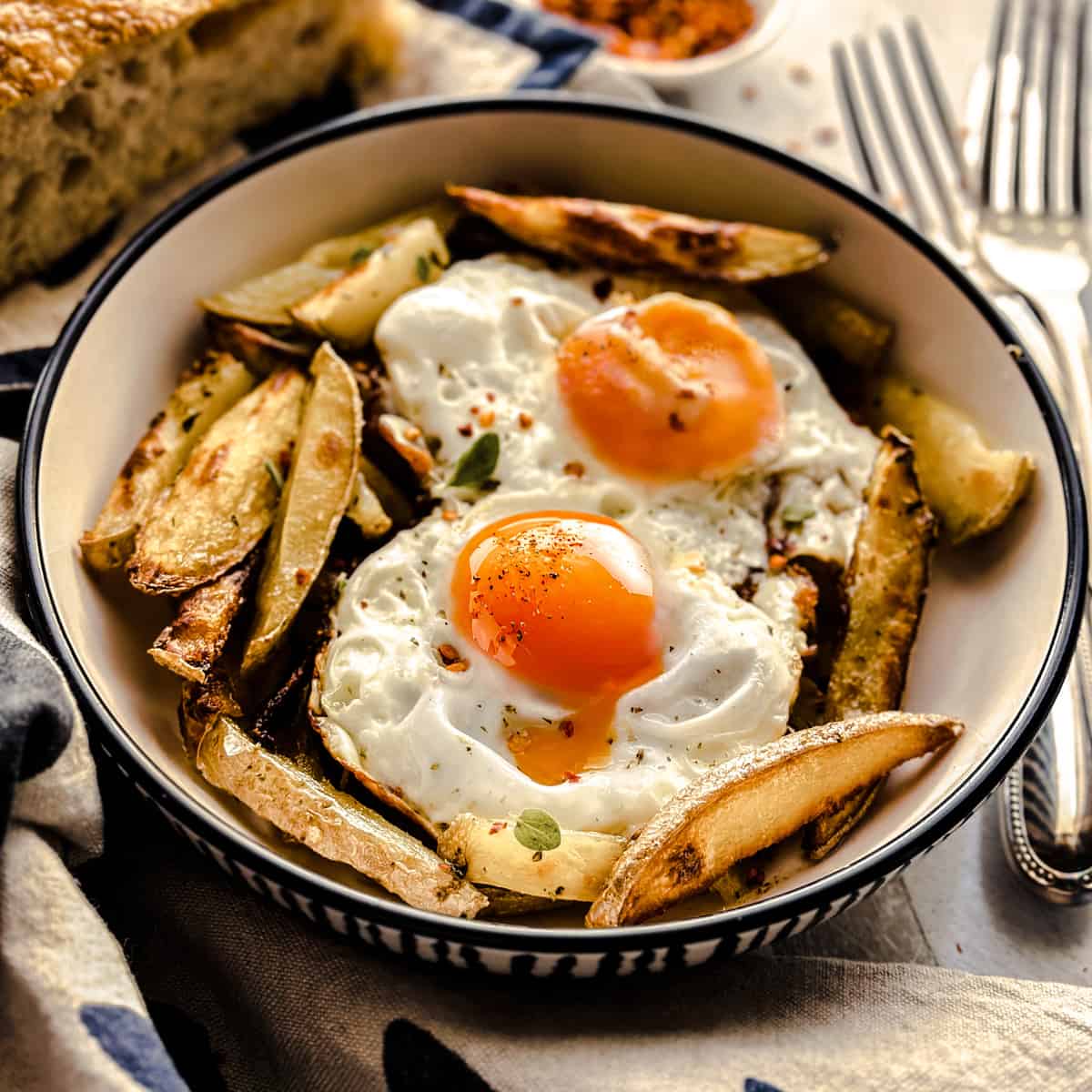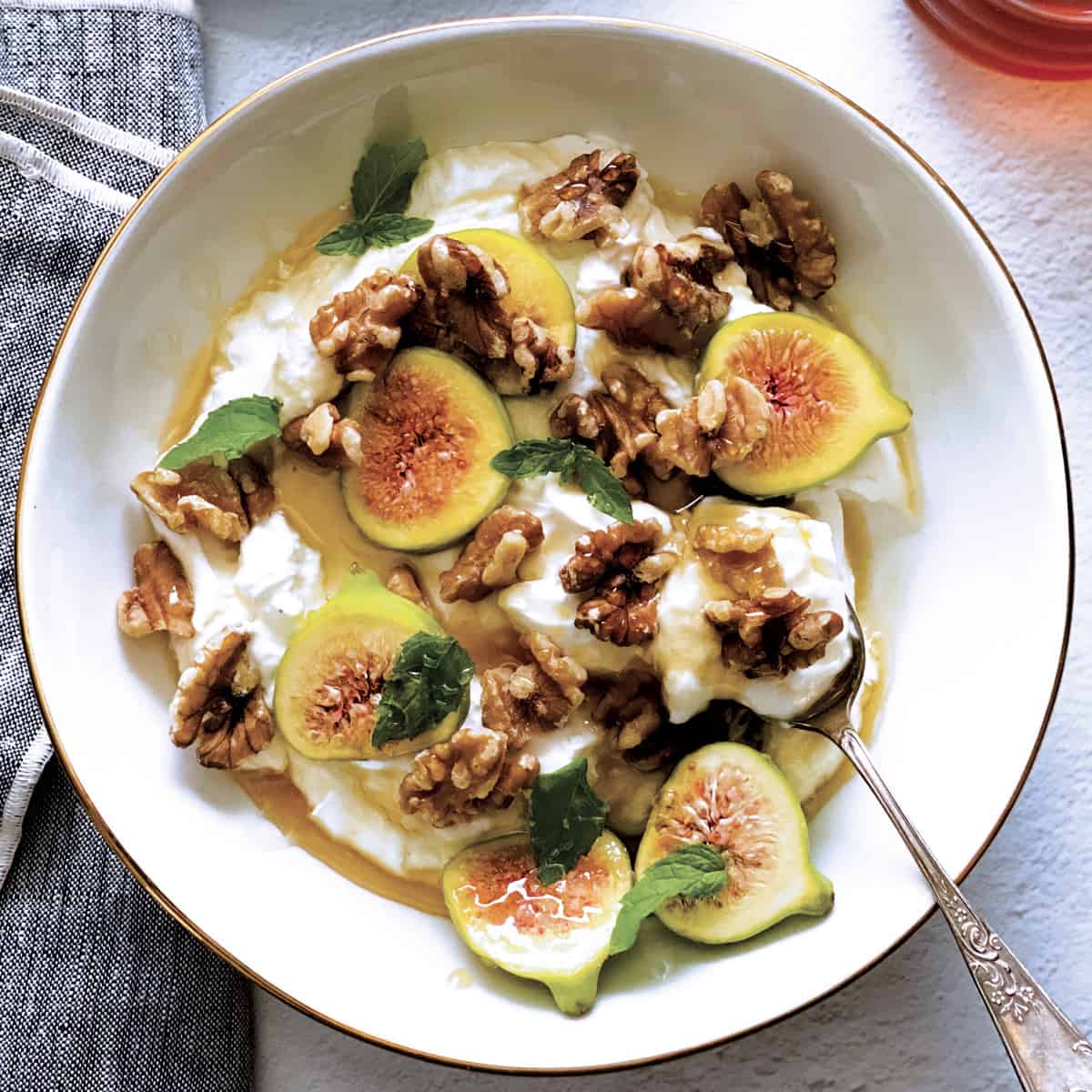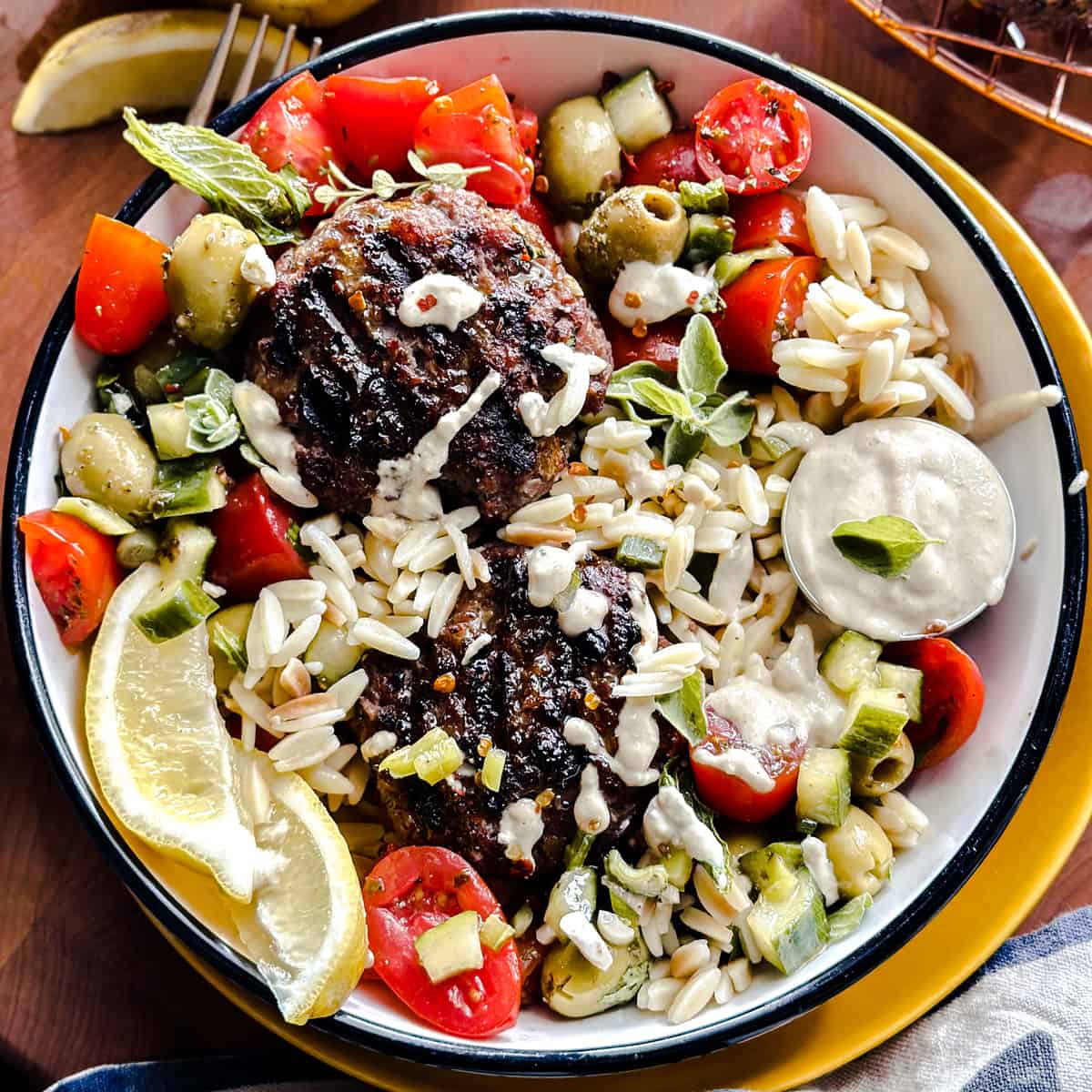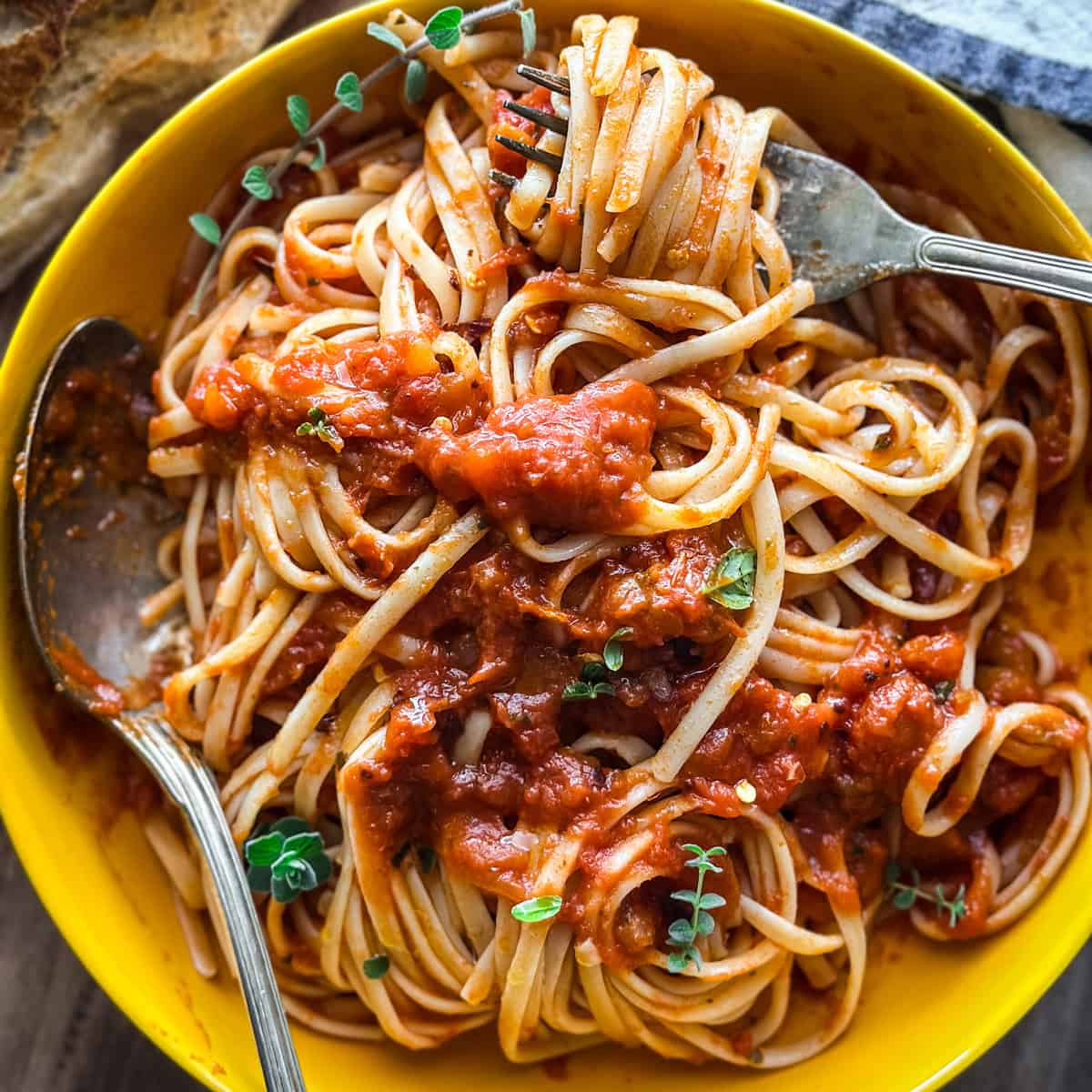Greek Easter cookies-koulourakia are a holiday staple, buttery and fragrant with lovely orange notes. Our traditional cookie recipe is simple to make and perfect for an Easter indulgence or any time of the year.
If you love these easter cookies, you will also love this portokalopita-orange phyllo cake, bougatsa chaniotiki-cheese phyllo pastry or tsoureki bread!
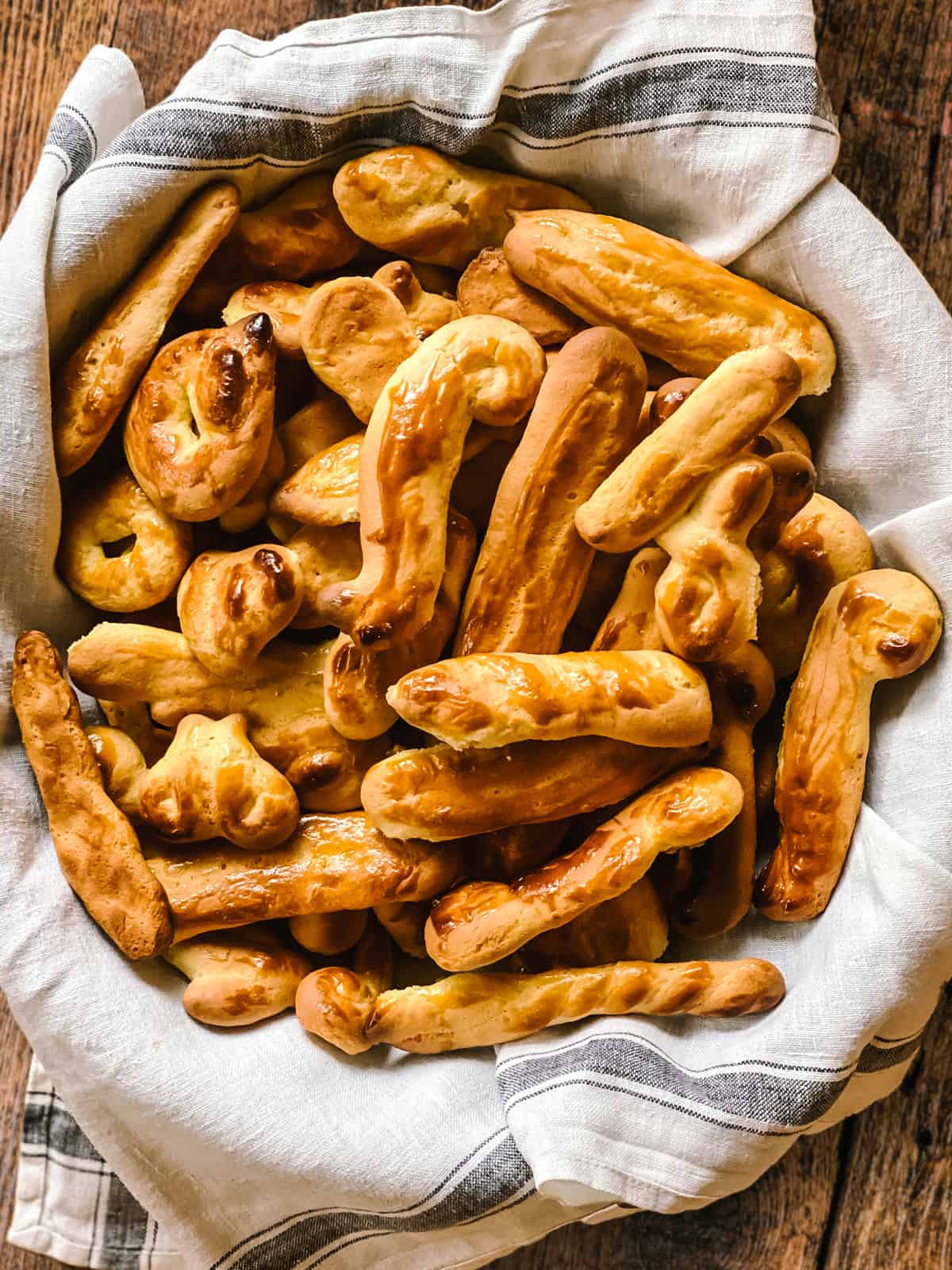
Why this recipe sings
Here is what you need

- All-purpose flour.
- Baking powder.
- Ammonia. You can substitute the same amount of baking powder if unavailable.
- Milk.
- Butter.
- Vanilla extract.
- Sugar.
- Fresh orange juice.
- Lemon zest.
- Eggs.
How to make them

- Put the sugar, eggs, and butter in a mixer bowl and beat for a few minutes. Add the lemon zest, vanilla extract, and orange juice and beat for a few more minutes.
- Dissolve the ammonia in the milk and mix the baking powder in a cup of flour.
- Add the milk to the mix. While beating, add the cup of flour with the ammonia. Continue adding the rest of the flour until the dough is soft and sticks slightly to the fingertips but is pliable. Please see the recipe notes.

- Place the dough in a bowl, cover it with a cloth napkin, and let it rest for an hour.
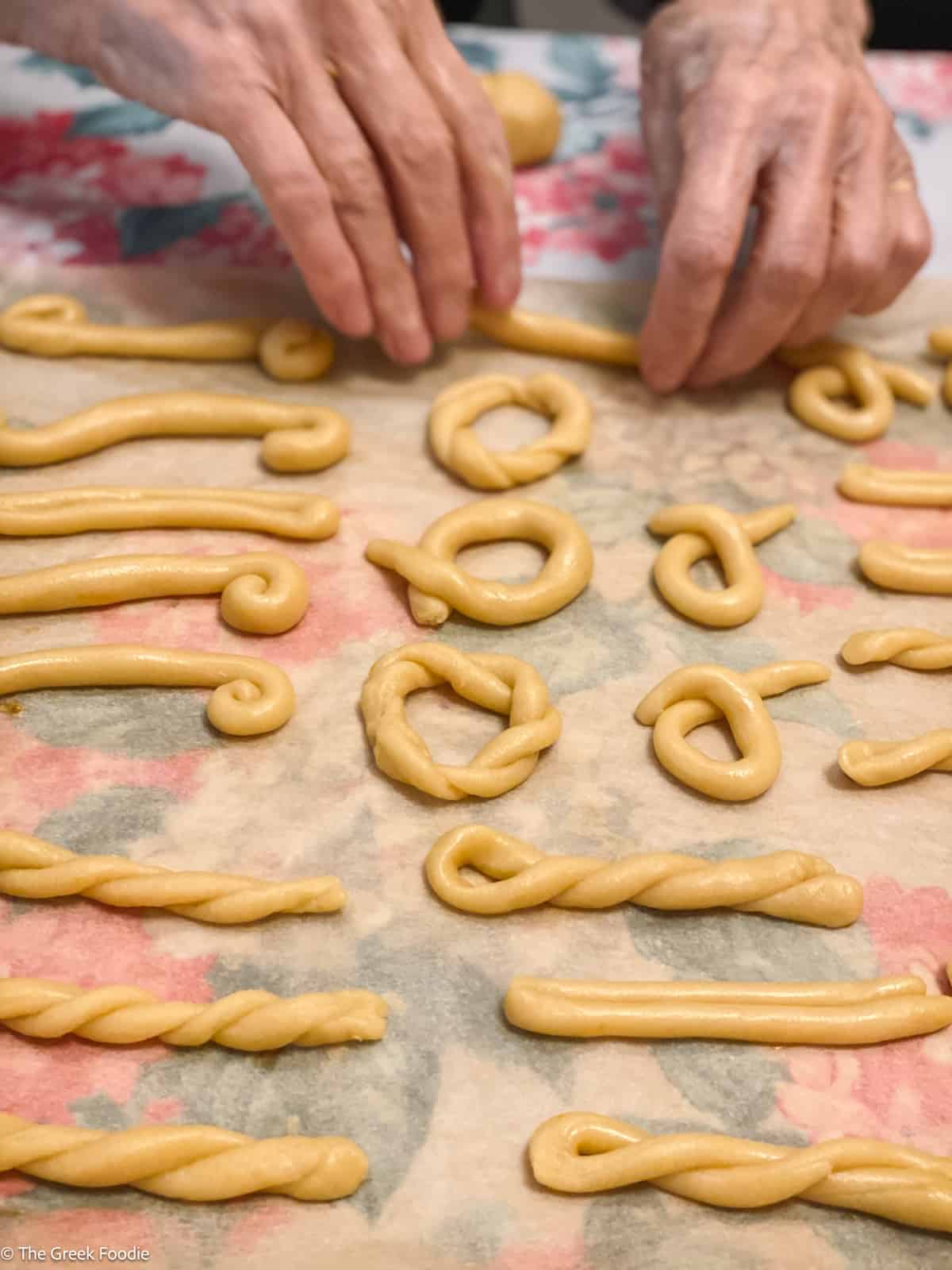
- Start forming the cookies. Pinch off a small dough ball about 1 inch / 3 cm in diameter and roll it into a thin cylinder. Shape the cookies in any shape you like: braids, circles, or even flowers.
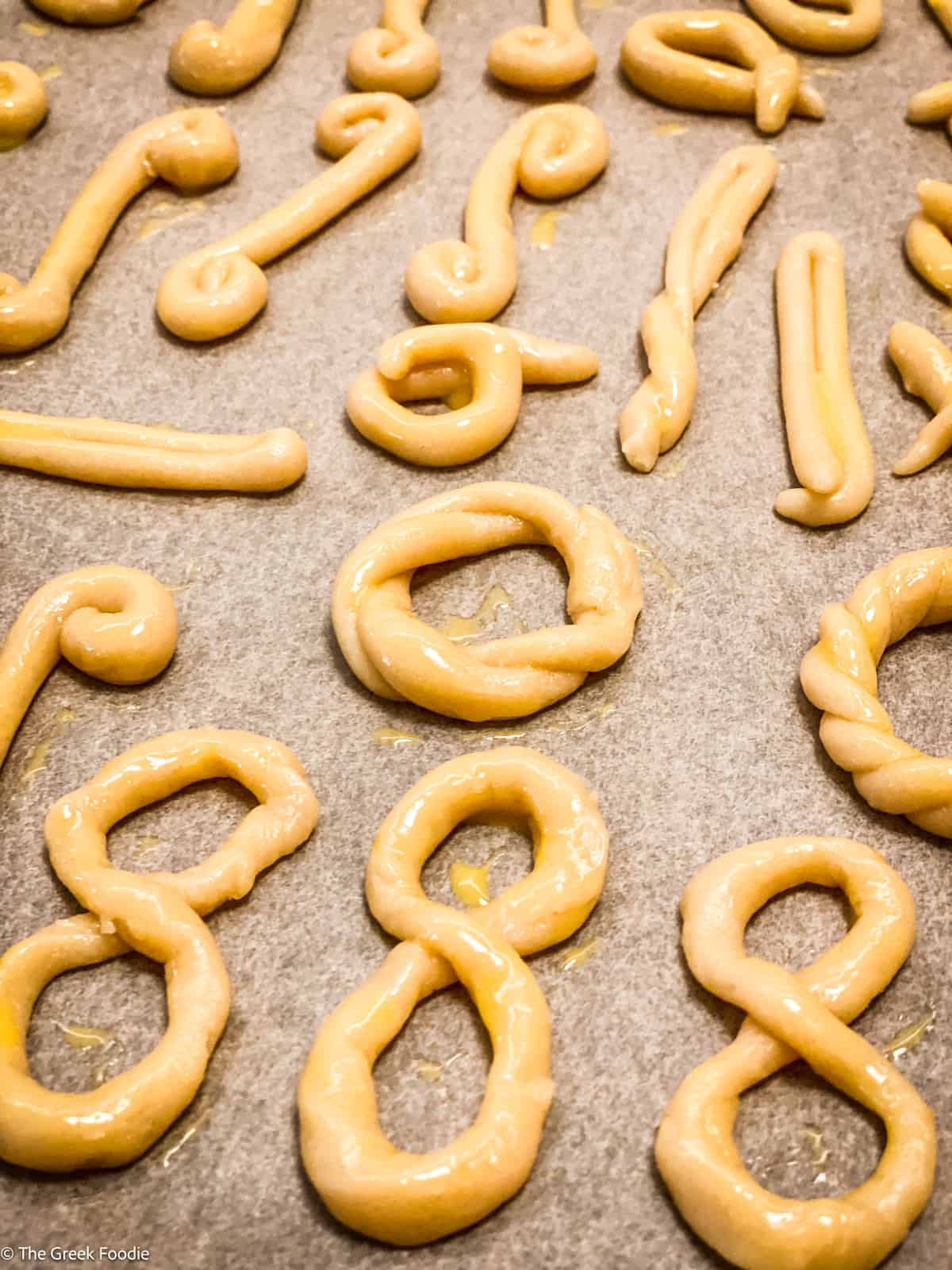
- Place cookies on a parchment paper lined baking sheet and brush them with the eggwash.
- Bake cookies at 175°C / 350°F for 20 to 25 minutes.
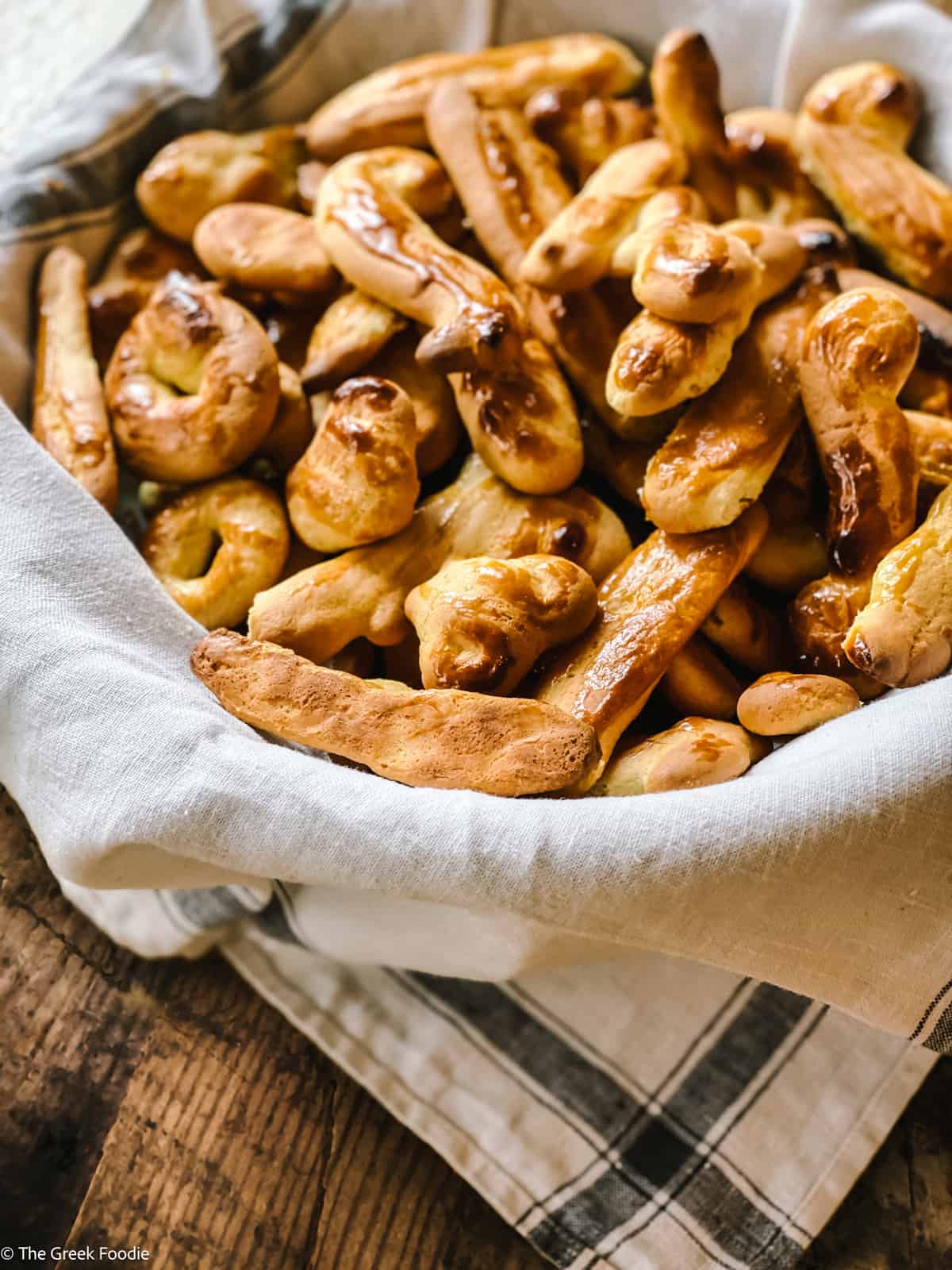
These cookies are great on their own—Crunchy, buttery and delicious. However, I love having a couple dipped into my coffee or tea for breakfast or as a snack.
At Easter, we also enjoy making a couple of loaves of tsoureki, Greek brioche bread, and cakes like this olive oil lemon cake. Other desserts include portokalopita-orange phyllo cake and syrupy pistachio baklava.
Greek Easter Cookie Q&A
Baker’s ammonia, also known as ammonium bicarbonate or ammonium carbonate, was the primary leavening agent used by bakers before baking soda and baking powder in the 19th century. Many European cookie recipes still utilize it as an ingredient.
I recommend using a scale when baking. In this recipe, a scale will be most helpful if you like your cookies to be the same size. You might be very good at eying your dough, so it is up to you if you want to weigh it before shaping.
The shape of koulourakia is usually a braid. But you can do any form you like. Round twisty, an infinity shape, all is good.
Check out my Greek pantry staples
Cooked this? Rate this recipe! You can also leave a comment below. I love hearing from you!
WANT TO EAT LIKE A GREEK? Subscribe to my newsletter and follow me on Facebook, Pinterest, and Instagram for the latest updates.

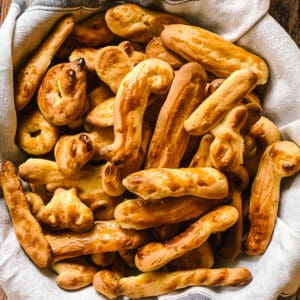
Greek Easter Cookies-Koulourakia
Equipment
- baking sheet
- Parchment paper
- Mixer (hand mixer or tabletop)
Ingredients
- 1 cup butter 250 grams
- 2 cups white sugar 440 grams
- 4 eggs medium
- 1 cup whole milk 250 ml
- 1 orange juiced
- 1 lemon zested
- ½ teaspoon vanilla extract
- 1 tablespoon ammonia heaping tablespoon, 20 grams
- 1 teaspoon baking powder 10 grams
- 1.3 kg all-purpose flour Please see notes bellow
Instructions
- Put the sugar, eggs, and butter in a mixer bowl and beat for a few minutes.
- Add the lemon zest, vanilla extract, and orange juice and beat for a few more minutes.
- Dissolve the ammonia in the milk and mix the baking powder in a cup of flour.
- Add the milk to the mix. While beating, add the cup of flour with the ammonia. Continue adding the rest of the flour until the dough is soft and sticks slightly to the fingertips but is pliable. Please see the recipe notes.
- Let the dough rest for an hour.
- Start forming the cookies. Pinch off a small dough ball about 1 inch / 3 cm in diameter and roll it into a thin cylinder.Shape the cookies in any shape you like. Braids, circles, or even flowers.Place cookies on a parchment paper lined baking sheet and brush them with the eggwash.
- Bake cookies at 175°C / 350°F for 20 to 25 minutes.
Notes
- This recipe makes about 100 Easter cookies.
- The amount of flour needed might vary. The dough must become soft and fluffy, otherwise the cookies will harden. If you see that the dough doesn’t need any more flour even if you have some remaining refrain from adding it in.
- Keep a few inches distance between the cookies as you line them up on the parchment paper because they will double their size.
- I recommend baking a first batch of cookies to test the time needed as every oven is different.
Nutrition



